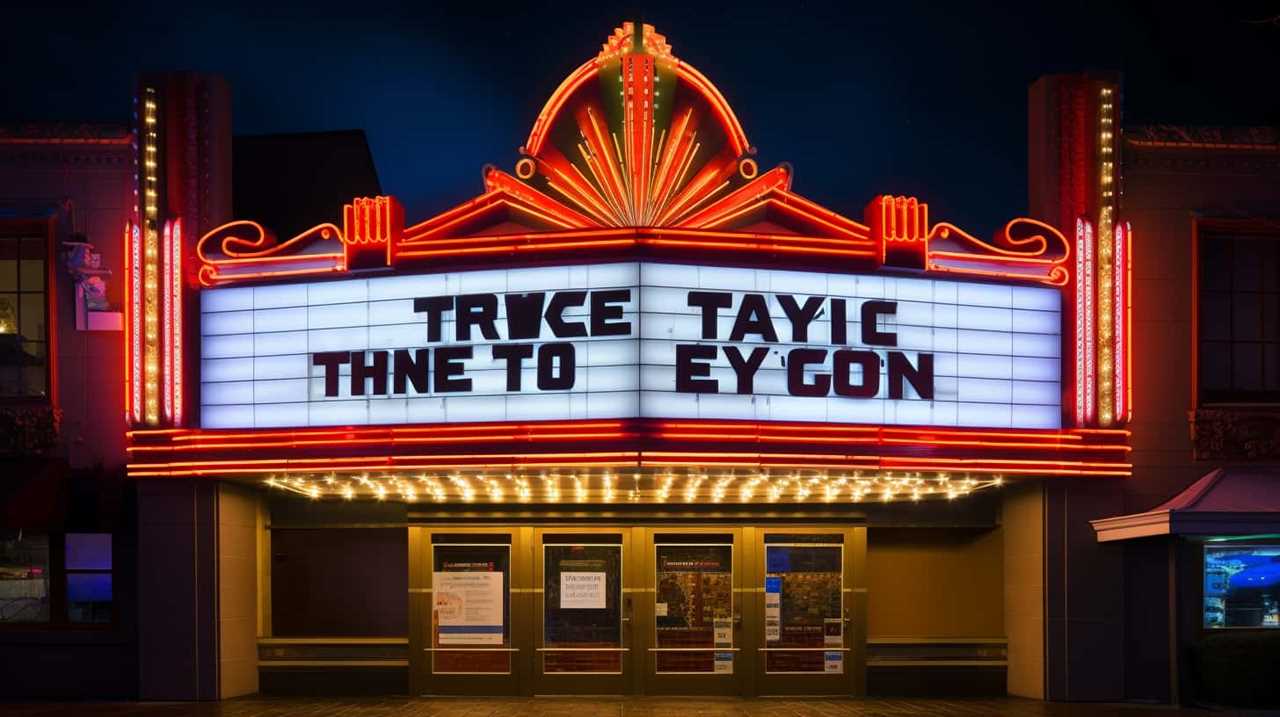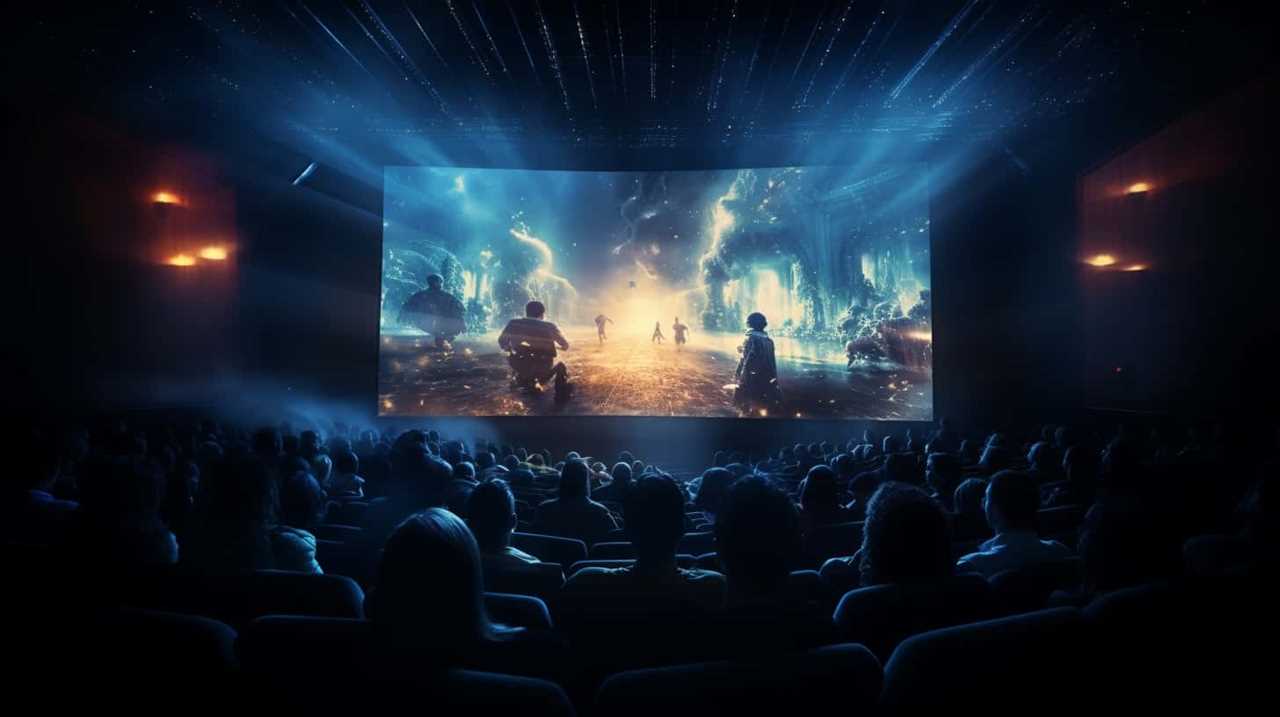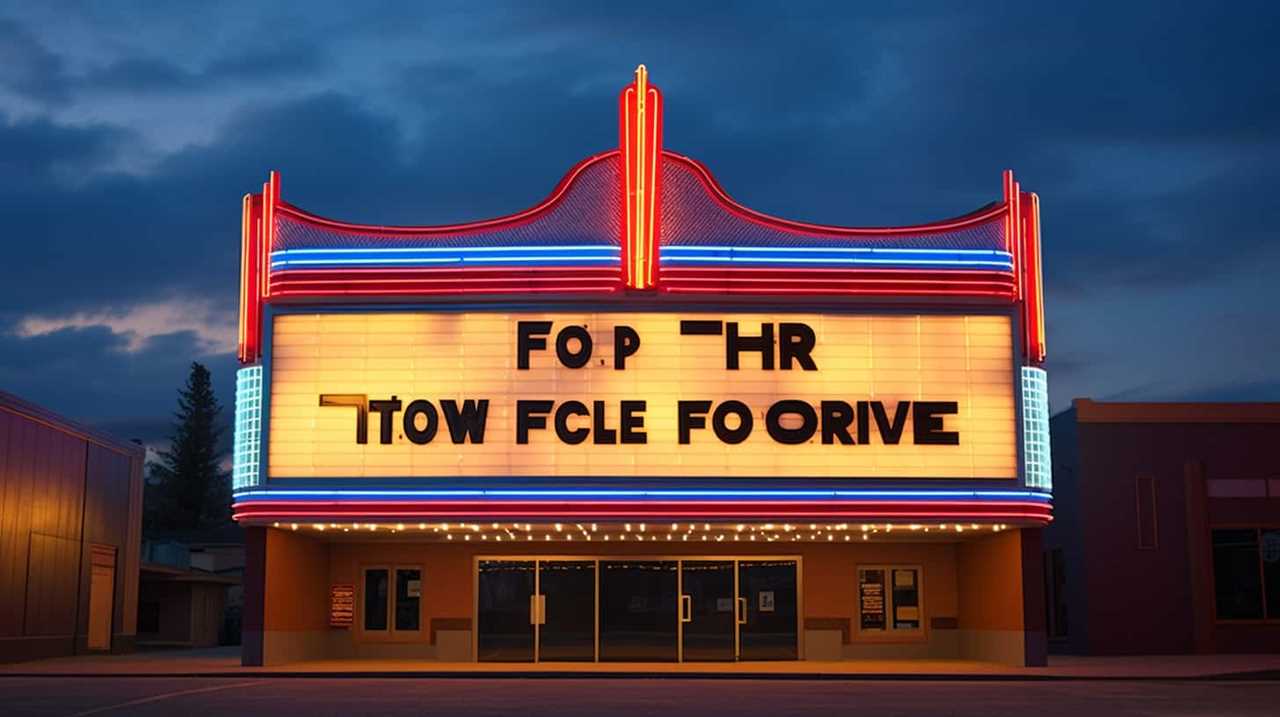I respect your point of view. You may think that movie scripts are only for entertainment, not for deep philosophical exploration. Nevertheless, I would like to challenge that assumption.
In this guide, I will reveal 7 tips to infuse philosophical depths into film scripts, pushing the boundaries of creativity and innovation. We all crave stories that make us think, that challenge our beliefs and provoke existential questions.
By incorporating moral dilemmas, metaphysical concepts, and ethical debates into cinematic narratives, we can create films that not only entertain, but also leave a lasting impact on our audience.
Join me on this journey as we delve into the search for meaning, engage in philosophical ponderings, and reflect on the complexities of the human condition through the power of film scripts.

Let’s unlock the profound potential of storytelling together.
Key Takeaways
- Film scripts that explore existential questions and dilemmas challenge the purpose of being and provoke introspection.
- Metaphysical concepts and abstract symbolism in film scripts invite interpretation and reflection, pushing the boundaries of reality.
- Ethical questions and moral gray areas in movies challenge traditional notions of good and evil, encouraging ethical reflection and critical thinking.
- Film scripts utilize symbolism and narrative structures to invite audiences to explore life’s mysteries and the search for meaning, resonating with viewers on a subconscious level.
Existential Questions in Film Scripts
In my experience, film scripts that explore existential questions have the potential to captivate audiences and provoke profound introspection. These scripts delve into the depths of human existence, questioning the purpose of our being and the meaning of life itself. By presenting characters facing an existential crisis, these films challenge viewers to confront their own beliefs and contemplate the mysteries of existence.
When a film script tackles existential questions, it has the power to ignite a spark of curiosity and ignite a desire for introspection within its audience. The exploration of themes such as purpose, identity, and the nature of reality can leave a lasting impact on viewers, forcing them to question their own lives and search for meaning. This type of storytelling allows for a unique opportunity to engage audiences on a deeper level, inspiring them to reflect on their own purpose and place in the world.
Moreover, films that tackle existential questions often push the boundaries of traditional storytelling, using innovative techniques and thought-provoking narratives to challenge societal norms and conventions. By pushing the boundaries of the medium, these films not only captivate audiences but also encourage them to think outside the box and consider new perspectives.
![]()
Moral Dilemmas Portrayed in Movie Scripts
From my perspective, exploring moral dilemmas in movie scripts adds an additional layer of complexity and ethical contemplation to the storytelling. It challenges the audience to question their own beliefs and values, forcing them to confront difficult choices and consider the consequences of their actions. These moral dilemmas often present existential quandaries, where characters are faced with ethical conundrums that have no clear right or wrong answers. This creates a sense of tension and suspense, as viewers are left grappling with the same moral dilemmas as the characters on screen.
To illustrate the impact of moral dilemmas in movie scripts, let’s take a look at a 2 column and 5 row table:
| Movie | Moral Dilemma |
|---|---|
| The Dark Knight | Should Batman break his moral code and kill the Joker to save innocent lives? |
| Schindler’s List | Should Schindler risk his own life to save the lives of countless Jewish prisoners? |
| The Matrix | Is it morally justifiable for Neo to sacrifice countless lives to defeat the machines and free humanity? |
| A Few Good Men | Should Colonel Jessup be held accountable for ordering the "Code Red" that resulted in the death of a Marine? |
| The Shawshank Redemption | Is it morally acceptable for Andy Dufresne to escape from prison, knowing the potential consequences for innocent inmates left behind? |
These examples highlight the range of moral dilemmas that can be portrayed in movie scripts, provoking thought and sparking discussions long after the credits roll. By exploring such ethical conundrums, filmmakers push the boundaries of traditional storytelling, challenging audiences to consider the complexities of human morality and the consequences of our choices.
Metaphysical Concepts Explored in Screenplays
As I analyze the metaphysical concepts explored in screenplays, I’m struck by the profound existential dilemmas that often arise. These scripts delve into the fundamental questions of human existence, grappling with the meaning of life, the nature of reality, and the existence of free will.

Through the use of abstract symbolism, screenwriters skillfully convey these complex ideas, challenging audiences to contemplate their own existence and contemplate the boundaries of their own reality.
Additionally, ethical questions are frequently posed, prompting viewers to reflect on their own moral compass and the consequences of their actions.
Existential Dilemmas in Scripts
I explore the metaphysical concepts of existential dilemmas in film scripts, delving into the depths of human existence.
Existential crises, often explored in films, force characters to confront the fundamental questions of life, such as the purpose of their existence and the nature of personal identity.
![]()
These dilemmas can be seen in scripts that challenge the boundaries of reality and explore the complex inner workings of the human mind. Through thought-provoking narratives and introspective characters, these scripts push the audience to question their own existence and contemplate the meaning of life.
By examining the existential dilemmas presented in film scripts, we gain a deeper understanding of our own place in the world and the complexities of the human experience.
Transitioning into the subsequent section about abstract symbolism in films, we’ll explore how filmmakers use visual cues to convey deeper meanings.
Abstract Symbolism in Films
To explore the metaphysical concepts of abstract symbolism in films, filmmakers use visual cues to convey deeper meanings. Symbolic imagery is employed to represent ideas and concepts that are beyond the realm of the tangible. These hidden meanings can be found in the choice of colors, objects, and even in the composition of a shot.

By using symbolism, filmmakers invite the audience to engage in a process of interpretation and reflection, challenging them to delve into the philosophical depths of the narrative. Through the use of abstract symbolism, films have the power to transcend the boundaries of reality and touch upon universal truths. This artistic approach allows for a rich and thought-provoking cinematic experience, where the audience becomes an active participant in deciphering the hidden messages within the film.
As we delve into the exploration of abstract symbolism, we must also consider the ethical questions that arise in movies, leading us to question our own moral compass.
Ethical Questions in Movies
Throughout the exploration of metaphysical concepts in screenplays, ethical questions in movies are often raised. When it comes to existentialism in cinema, filmmakers delve into the complexities of human existence and the moral dilemmas that arise. Here are three ways in which ethical questions are brought to the forefront in movies:
- Moral Ambiguity: Films challenge traditional notions of good and evil, blurring the lines between right and wrong. Characters are often faced with difficult choices, forcing audiences to question their own moral compass.
- Consequences of Actions: Movies explore the repercussions of ethical decisions, highlighting how one’s choices can impact not only themselves but also those around them. This serves as a reminder of the importance of considering the ethical implications of our actions.
- Ethical Responsibility: Filmmakers use storytelling to examine the role of morality in society. By presenting characters who grapple with ethical dilemmas, movies encourage viewers to reflect on their own values and responsibilities.
Incorporating ethical questions into movies adds depth and thought-provoking elements to storytelling, challenging audiences to engage with metaphysical concepts and consider the role of morality in their own lives.

Ethical Debates Within Cinematic Narratives
As a film enthusiast, I find myself constantly drawn to the moral gray areas and ethical debates within cinematic narratives. It’s fascinating to see how filmmakers tackle complex issues and navigate the delicate balance between ethics and entertainment.
These films not only challenge our beliefs and provoke thoughtful discussions, but also provide a platform for exploring the complexities of human nature and the consequences of our actions.
Moral Gray Areas
I often find myself captivated by the moral gray areas presented in cinematic narratives. These ethical debates within the stories create a sense of ambiguity that challenges our understanding of right and wrong. The moral complexity in storytelling allows for a deeper exploration of human nature and the choices we make.
Here are three reasons why these moral gray areas are so intriguing:

- Provoking Ethical Reflection: When confronted with characters who navigate moral dilemmas, we’re forced to question our own beliefs and values. This introspection can lead to a greater understanding of ourselves and the world around us.
- Shattering Black and White Perspectives: Cinematic narratives that explore moral gray areas reject simple dichotomies of good and evil. Instead, they emphasize the complexity of human behavior, highlighting the shades of gray that exist in between.
- Encouraging Critical Thinking: Moral gray areas challenge us to think critically and consider different perspectives. They encourage us to engage with the story on a deeper level, pushing us to analyze and evaluate the characters’ choices and actions.
Ethics Vs. Entertainment
One reason ethical debates within cinematic narratives are intriguing is the way they challenge our understanding of right and wrong. In storytelling, ethics play a crucial role in shaping the narrative and the moral dilemmas faced by the characters.
However, striking a balance between entertainment and thought provocation can be a challenging task for filmmakers. On one hand, movies are meant to entertain and captivate the audience, often relying on action-packed sequences and thrilling plot twists. On the other hand, ethical debates within the storyline can provide a deeper level of engagement and provoke critical thinking among viewers.
It’s essential for filmmakers to find the right balance between entertainment value and thought-provoking ethical discussions, ensuring that the audience is both entertained and stimulated intellectually.
The Search for Meaning in Film Scripts
Where can one find the search for meaning in film scripts? It’s within the realm of existentialism in storytelling and the role of symbolism in scriptwriting that we discover the profound exploration of life’s ultimate questions. In the quest for meaning, film scripts often utilize powerful storytelling techniques that captivate and challenge audiences.

Here are three ways in which the search for meaning is manifested in film scripts:
- Symbolism: Film scripts often employ symbolic elements to convey deeper meanings and provoke thought. Through the use of recurring motifs, metaphors, and visual imagery, filmmakers communicate profound philosophical ideas that resonate with viewers on a subconscious level.
- Character Journeys: The search for meaning in film scripts is often embodied by the characters themselves. Their personal growth and transformation mirror the existential quest for purpose and understanding. As we witness their struggles, triumphs, and self-discovery, we’re prompted to reflect on our own lives and contemplate the meaning of our existence.
- Narrative Structure: Film scripts utilize narrative structures that mirror the complexities of philosophical ponderings. Nonlinear storytelling, parallel storylines, and open-ended conclusions invite audiences to engage in a deeper exploration of life’s mysteries. These unconventional approaches challenge traditional narratives and encourage viewers to question their own beliefs and assumptions.
As we delve into the search for meaning in film scripts, it becomes evident that they serve as powerful vehicles for philosophical ponderings. However, it isn’t only through visual storytelling that these philosophical depths are plumbed. In the subsequent section, we’ll explore how philosophical ponderings are also embedded within movie dialogues.
Philosophical Ponderings in Movie Dialogues
Continuing the exploration of philosophical depths in film scripts, movie dialogues provide a rich platform for profound contemplation and existential questioning. Within these dialogues, characters engage in existential musings and engage in philosophical dialogues that delve into the nature of existence, the meaning of life, and the complexities of the human condition.
One example of such philosophical ponderings can be found in the movie ‘Blade Runner’ when the replicant Roy Batty delivers his famous ‘Tears in Rain’ monologue. In this scene, Batty reflects on the transience of life and the significance of one’s experiences, questioning the purpose of it all. His words invite us to contemplate our own mortality and the fleeting nature of our existence.

Another film that explores philosophical depths through dialogue is ‘Before Sunrise.’ The characters, Jesse and Celine, engage in thought-provoking conversations about love, relationships, and the passage of time. Through their discussions, they raise profound questions about the nature of human connection and the fleeting nature of romantic encounters.
Deep Reflections on the Human Condition in Scripts
The exploration of the human condition in film scripts delves into the complexities of existence and offers profound insights into the nature of being. It’s through the art of storytelling that filmmakers are able to captivate audiences and provoke deep reflection on the existential crisis that we all face as human beings.
Existential Crisis: Film scripts that tackle the human condition often grapple with the fundamental questions of life, such as the meaning of existence, the nature of reality, and the inevitability of death. These scripts present characters who are confronted with their own mortality and are forced to confront the existential dread that arises from the awareness of their own finitude.
Introspective Character Development: In order to explore the human condition, scripts often employ introspective character development, delving into the inner thoughts, emotions, and motivations of the protagonist. Through introspection, characters grapple with their own identity, values, and beliefs, allowing the audience to reflect on their own experiences and contemplate the complexities of the human psyche.

Profound Insights: By delving into the human condition, film scripts offer profound insights into the nature of being. They challenge our preconceived notions about life and push us to question our own existence. Through thought-provoking narratives and deep character arcs, these scripts provide audiences with a fresh perspective on the human experience, encouraging us to engage in deep reflection and contemplate our place in the world.
Frequently Asked Questions
How Do Philosophical Concepts in Film Scripts Impact the Overall Success of a Movie?
Exploring philosophical themes in film scripts greatly impacts the overall success of a movie. The inclusion of thought-provoking concepts enhances audience engagement, creating a deeper, more meaningful viewing experience that resonates long after the credits roll.
Can You Provide Examples of Famous Films That Have Effectively Explored Metaphysical Concepts in Their Screenplays?
Inception and The Matrix are prime examples of films that effectively explore metaphysical concepts in their screenplays. They delve into the depths of reality and identity, challenging our perceptions and igniting a sense of wonder.
How Do Filmmakers Ensure That Ethical Debates Within Cinematic Narratives Are Portrayed in a Thought-Provoking and Balanced Manner?
To ensure ethical dilemmas in film narratives are thought-provoking and balanced, filmmakers must present multiple perspectives, challenge assumptions, and avoid simplistic solutions. This creates a space for audiences to engage in meaningful debates and explore complex moral issues.

What Are Some Common Techniques Used by Screenwriters to Convey Deep Reflections on the Human Condition in Movie Dialogues?
In movie dialogues, screenwriters employ various techniques to delve into the depths of the human condition. By crafting thought-provoking lines and engaging conversations, they create a profound impact on the audience’s perception and understanding of life’s complexities.
Are There Any Specific Guidelines or Principles That Screenwriters Follow When Incorporating Existential Questions Into Their Film Scripts?
Screenwriters have creative freedom to incorporate existential questions in film scripts, but must consider audience reception. Viewers respond positively to films that raise philosophical questions, as it sparks deep reflection and offers innovative storytelling.
Conclusion
In the depths of cinematic storytelling, film scripts transcend their mere purpose of entertainment. They become vessels of profound philosophical exploration, touching upon existential questions, moral dilemmas, and metaphysical concepts.
Through ethical debates and deep reflections on the human condition, they offer audiences a chance to ponder the meaning of life and the intricacies of our existence. These scripts serve as catalysts for introspection, inviting us to dive into the philosophical depths of our own minds.

Lauren’s talent in writing is matched by her passion for storytelling. Her love for books and deep understanding of culture and entertainment add a distinct flavor to her work. As our media and press contact, Lauren skillfully bridges the gap between afterQuotes and the broader media landscape, bringing our message to a wider audience.









